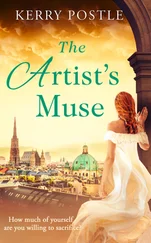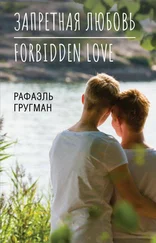For want of anything better to clean himself up with, Luis accepted her tattered offering. He rubbed away at his shirt as quickly as he could, his head nodding in the gypsy woman’s direction, grateful that all that was left of the parakeet’s slimy gift was a suspicious, damp stain on his left shoulder. She flashed her crucifix at him in response with a smile that made her eyes disappear. But now he really had to go. He walked swiftly back along the dry, dusty path, shouting back his thanks.
He’d very nearly packed all the emotions he’d allowed to spill out over this last hour back into the neat compartments he’d allotted them in his mind when he lurched backwards, pulled back by a familiar voice. ‘Don’t run off now, Paloma!’ A little girl, swift as a comet, hurtled past him, her flaming hair dragging his eyes along with her. When the speeding ball of fire screeched to a halt back along the path, not far from the Antonio Muñoz Degrain monument, Luis’ heart missed a beat.
The child clung on to a young woman with long, dark hair.
It was her. It was Maria.
‘What are you going to do when you grow up?’ It was a clear spring day in 1936 and Maria lay back under the gnarled, black branches of the olive tree and looked up at the Andalucian sky above: vivid blue, and as cloudless as the future she saw for herself. She and her friend Paloma often sought shade and solace in this grove, under this tree, far away from the dust and heat of the village. And here they would dream.
‘When I grow up, I’m going to …’ Paloma began. She flicked out her fingers in frustration, brushing Maria’s own. ‘Oh, I don’t know!’ she cried in answer to the older girl’s question – but she did. She would grow up to do the same as her mother, and her mother’s mother before her. A husband would be found for her, she would have children, and both she and her husband would work up on the landowner’s estate. That was the way it was; that was the way it had always been. Paloma’s fate was as set as if written in the stars. It was only Maria who saw a future full of possibilities for her friend as she gazed into the bright, limitless sky above. And Paloma loved her for it.
Instinctively she turned on her side to wrap her limbs around Maria’s. Legs, arms, fingers interlaced, a tangle as fixed and as complex as the roots of the olive tree beneath.
The girls’ skins squelched, mollusc-like, as Maria pulled herself away. Pushing herself up to sitting, she propped her back up against the solid trunk of the tree.
She looked at Paloma, cheek squashed against forearm. The skin, usually so plump and firm, gathered in folds and pushed her left eye closed. It struck Maria that in that moment her friend took after her mother Cecilia, whose skin cascaded in folds all over her body; ill-fitting, stretched and worn out, through overuse no doubt. Maria’s father would often sing the woman’s praises – how she fed her children well, repaired their clothes, kept a spotless home, worked hard – but the fact remained that Paloma’s mother was irritable, illiterate and limited. There. Maria had thought it again. Guilt ran a feather over her skin, causing her to shiver. Perhaps she’d judged Paloma’s mother too harshly – her father was always telling her so – but the fact remained: if she didn’t show Paloma there was another way to live, a future other than the one she saw mapped out for herself, then her dear, sweet-natured friend would slowly but surely turn into a beast of burden, just like poor old Cecilia.
And Maria wouldn’t be able to live with herself if she allowed that to happen.
‘Sit up,’ she snapped. ‘So, what do you want to do when you grow up?’ She would have a response.
Paloma rubbed her eyes and sighed.
‘If you don’t answer I’ll have to ask somebody else.’ Maria’s voice was sharp and vaguely menacing. Her eyes scanned the olive grove for possible candidates. They alighted upon a herd of goats resting under a nearby tree. She recognised her own stupidity.
Thankfully Paloma did not.
‘No, it’s fine. I’ll play,’ the gentle soul said, her tone one of quiet resignation. Two years younger than Maria, she always felt grateful the older girl had chosen her and not her sister Lola to confide in. Lola was sixteen, the same age as Maria. It would have made sense for the two older girls to be close. But they weren’t. Never had been. They were fond enough of each other, and the fact that they were opposites in every single way was not, in itself, insurmountable. But that Paloma was so easy to be with, so innocent and good-natured, made her a perfect companion. Lola’s little sister had become the little sister that Maria had always wanted. She could love and protect her, and teach her about all the great and good things in life. Lola, on the other hand, came fully formed with a tongue as sharp as a knife.
Paloma brought her chin to nestle in the curve between her knees, her black hair still curled up flat with perspiration around her face. A stray lock misbehaved and draped itself like a dark rope against the deep pink of a cheek that was soft and plump once more. If Cecilia had ever looked like this Maria could not imagine it. She leant over towards her friend and pushed the dark unruly coil back with tenderness and waited for an answer.
‘Well,’ Paloma began, unsure how to proceed. To get married was the pinnacle of her life, and the thought of a wedding with an abundance of flowers, food, finery, and all the froth that went with it, had started to fill many a quiet moment. But to admit this, Paloma knew, would displease her friend. She waited for guidance.
‘Will you have children?’ Maria asked.
‘Y-yes,’ Paloma answered. ‘Once I’m married.’
‘Why?’ Maria asked.
‘Why? Why what?’
‘Why would you get married before having children?’
Paloma’s dark brown eyes widened; Maria’s creased with satisfaction. ‘In fact,’ Maria ventured, emboldened by the surprise in Paloma’s eyes, ‘why would you get married … at all ?’ Her young friend’s already wide eyes turned into the fullest of moons.
The evening before, Seňor Suarez, the village teacher who used to work in Madrid and still had family and friends in the capital, had come to eat with Maria and her father, Doctor Alvaro.
The winds of change were blowing and whistling their sinewy path around Spain and though they’d barely touched Fuentes de Andalucía in any significant way, the more travelled citizens, of which Seňor Suarez was one, often brought back stories from the outside world whenever they returned to the sleepy little village. Suarez was teacher, philosopher, and general do-er of good deeds (mostly political), and a frequent dinner guest at Maria’s home where the precarious state of the government and how to best help workers in the area were his topics of choice. But last night, as he had smiled over at Maria and realised for the first time that she was a young woman, his conversation had taken a new turn.
‘You know, in Madrid, and I hear it’s the same in Malaga, things are so very different for women now. They have more freedom. More choice.’ He’d looked over at Doctor Alvaro who’d nodded for him to continue. Suarez had already told them that night about a growing vegetarian movement in the capital. Nothing his friend had to say, Alvaro thought to himself as he chewed on a particularly gristly bit of sausage, could be more challenging for both he and his daughter to swallow than that.
But then again.
‘A woman no longer has to get married if she wants to live with a man.’
The doctor had choked on the wine he’d just poured into his mouth. He’d expected talk of work opportunities, education … not co-habitation. But he was open-minded, fair, forward-thinking; he knew his good friend to be so too. ‘Please, carry on,’ he’d spluttered, waving his hands around as he struggled to keep his eyebrows from arching.
Читать дальше












